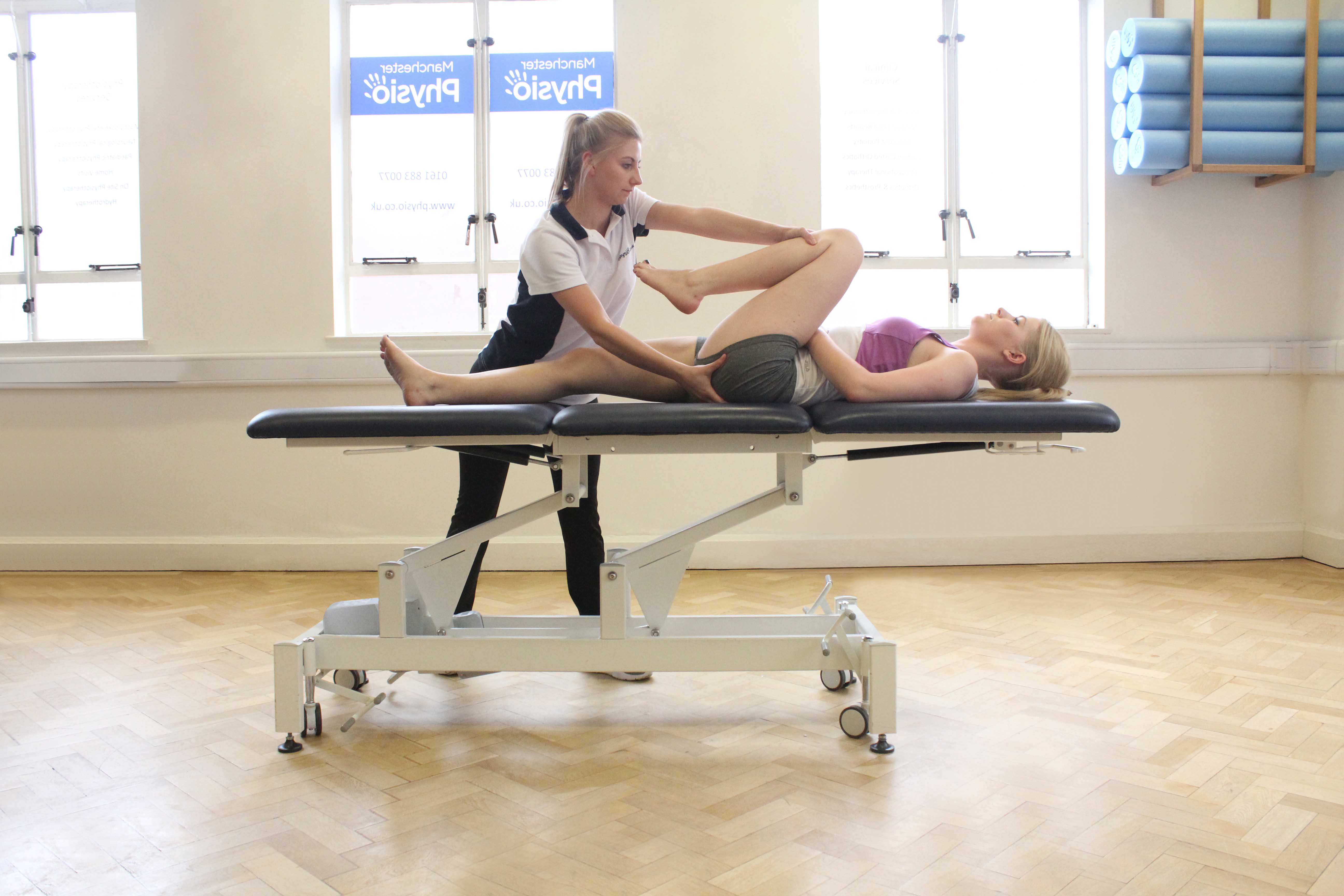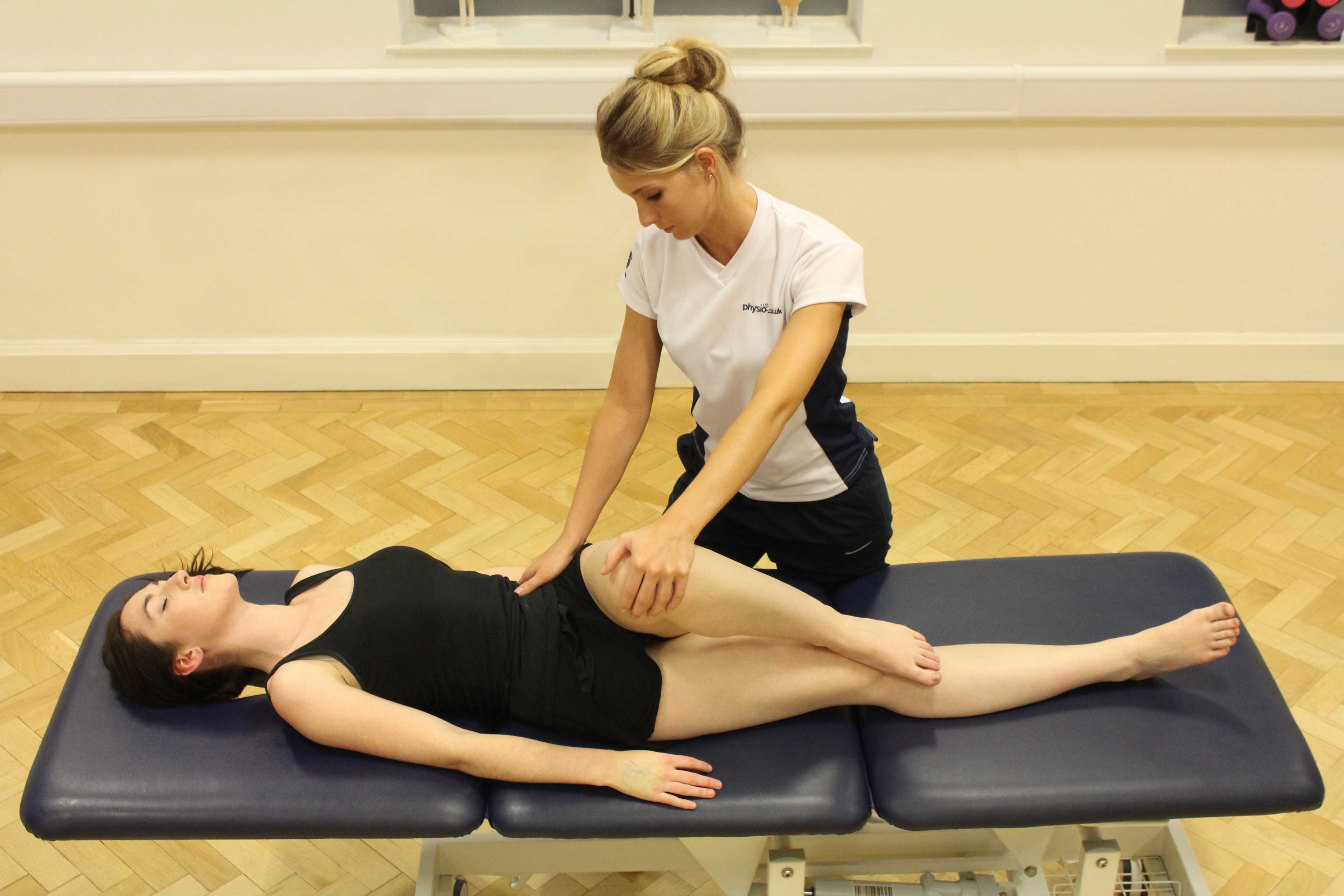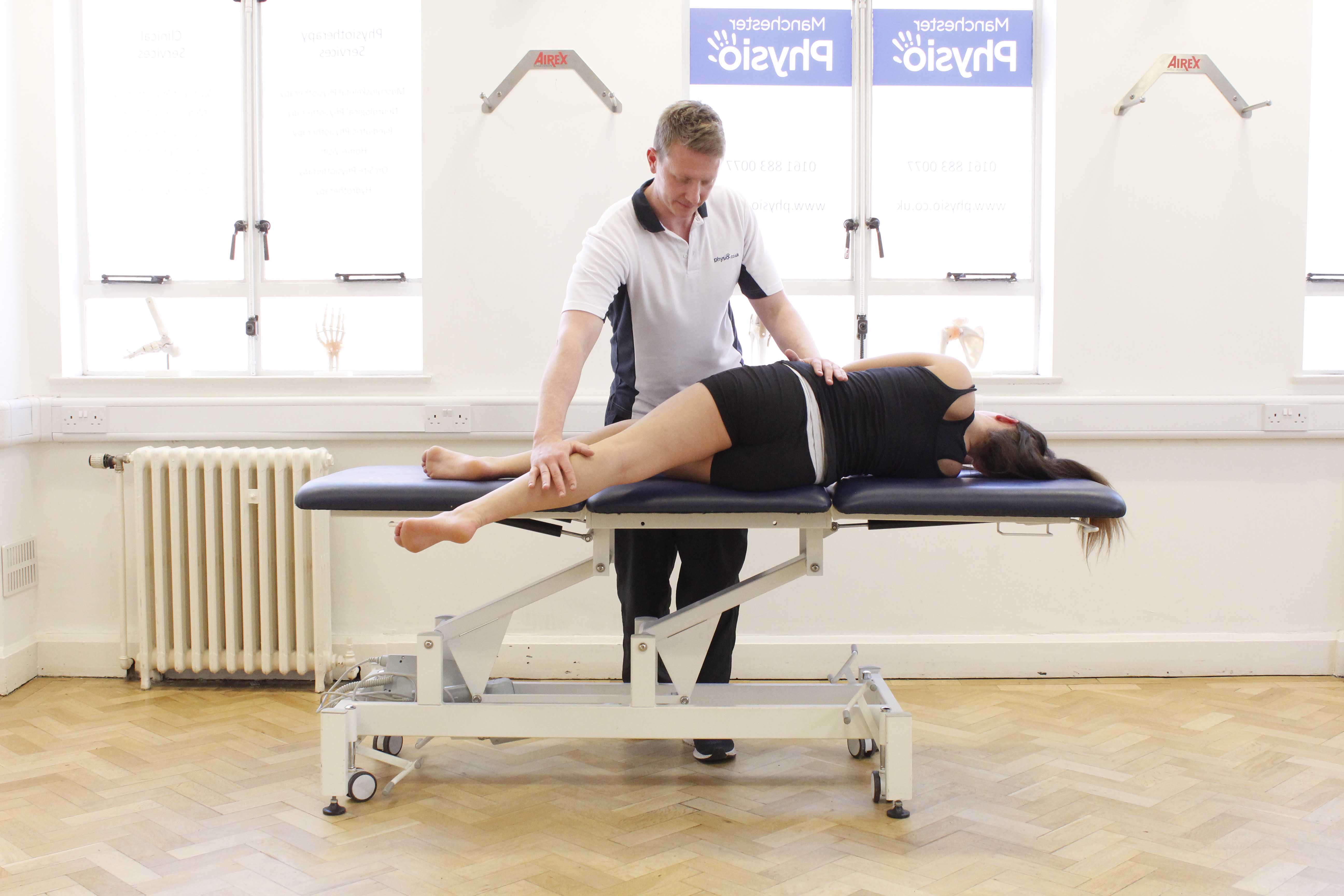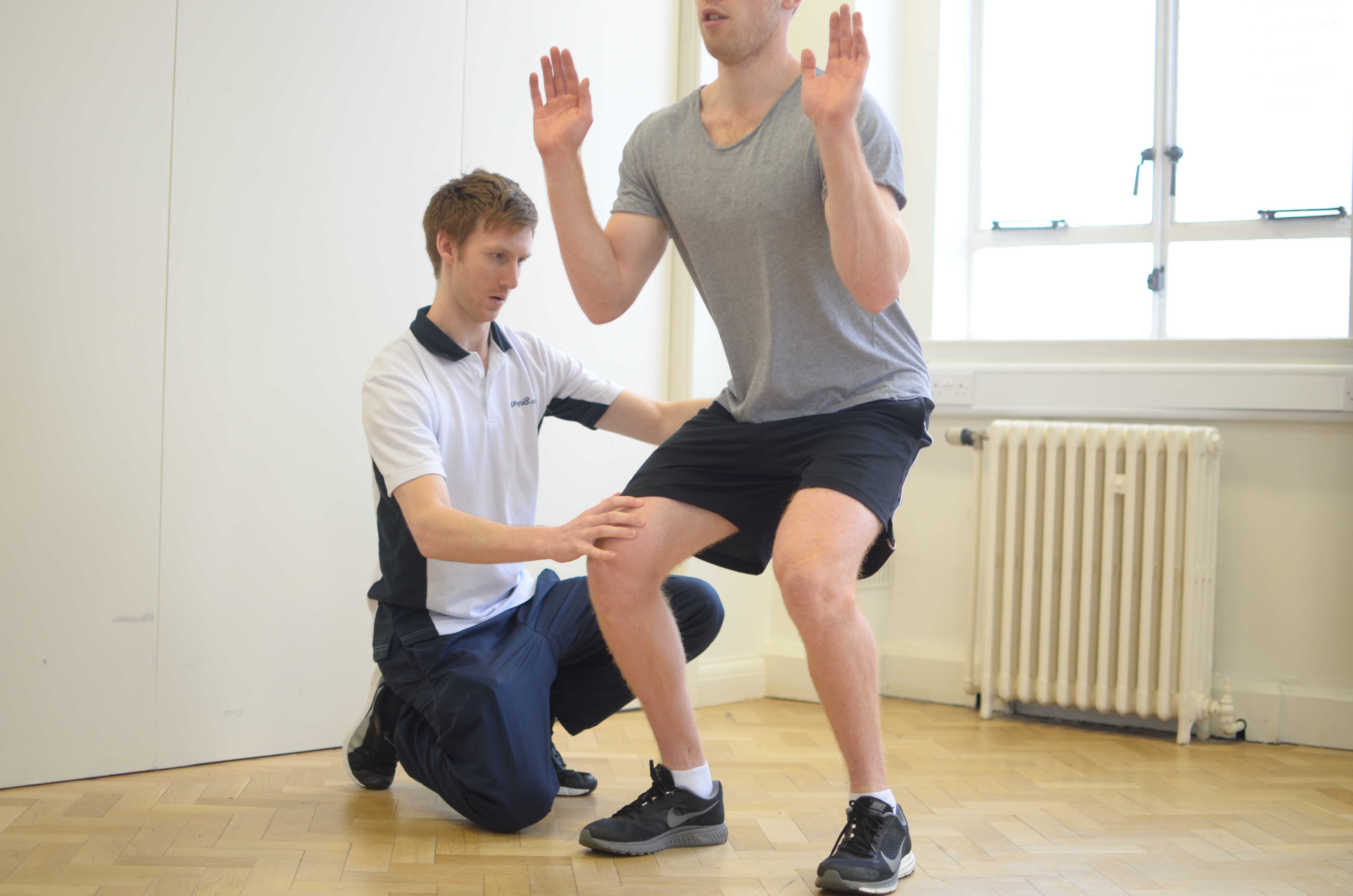What is a fractured pelvis?
The pelvis is a ring-shaped bone consisting of different joints that are important for movement and weight bearing. Fractures can occur in any area of the pelvis but are most common in the acetabular area which connects the pelvis with the femur to make up the hip joint.
There are two types of pelvic fractures. A single break in the bone is known as a stable fracture whereas two or more fractures in the pelvic bone are referred to as unstable. Physiotherapy is an effective treatment for both types of fractures.
 Above: Deep tissue massage of the muscle and connective tissues around the hip.
Above: Deep tissue massage of the muscle and connective tissues around the hip.How does a fractured pelvis occur?
A fractured pelvis can occur in a number of different ways including:
- Falling from height
- Road traffic accidents
- Elderly people with osteoporosis (brittle bones) who experiencing a fall or injury to the pelvis
- Severely strained muscles can sometimes cause a small piece of bone to be torn away from the pelvis. This is known as an avulsion fracture and is more likely in sporting injuries.
What are the symptoms of a fractured pelvis?
Pelvic fractures are usually very painful. You may notice immediate swelling and bruising around the area making it difficult to move. If the fracture is severe, it may cause damage to internal organs and require urgent attention. Depending on the severity of the injury, you may not be able to weight bear until the fracture has healed. Other symptoms may include:
What should I do if I have a fractured pelvis?
You will need to visit your nearest accident and emergency department if you suspect you have a fractured pelvis. You will then have an X-ray to confirm the location of the fracture. If other structures such as muscle and ligaments have been damaged, you may need an MRI scan which can identify these injuries.
If your fracture is stable, it may heal on its own and you may be discharged with crutches to assist your recovery. Unstable fractures will require surgery and an external fixator may be used to keep the broken bones in place while they heal.
It is important to begin physiotherapy as soon as a decision has been made about the best management of your pelvic fracture. This will ensure you keep as active as possible and help you to regain your strength.
 Above: Passive stretch of the muscles and connective tissues of the hip and pelvis by specialist therapist
Above: Passive stretch of the muscles and connective tissues of the hip and pelvis by specialist therapistPhysiotherapy treatment for a fractured pelvis.
Physiotherapy for pelvic fractures will depend on the type, severity and location of the injury. Your physiotherapist will decide on the best treatment programme for you following your assessment. Physiotherapy may include a home exercise programme and practice with walking aids to help you improve your activity levels. Physiotherapy may include:
 Above: Passive stretch of the muscles and connective tissues of the hip and pelvis by specialist therapist
Above: Passive stretch of the muscles and connective tissues of the hip and pelvis by specialist therapistWhat shouldn’t I do if I have a fractured pelvis?
Do not ignore your symptoms if you suspect you have a fractured pelvis, no matter how minor they are. You should not continue with your normal activities as this may cause further complications and delay your recovery.
Could there be any long-term effects from a fractured pelvis?
Stable pelvic fractures usually heal by themselves and are managed successfully with physiotherapy. Recovery of unstable fractures requiring surgery may take several months but a full recovery will be achieved with a tailored physiotherapy programme.
 Above: Progressive strengthening hip exercises supervised by experienced therapist
Above: Progressive strengthening hip exercises supervised by experienced therapistTo arrange a physiotherapy appointment call Physio.co.uk on 0330 088 7800 or book online.

 0330 088 7800
0330 088 7800

































